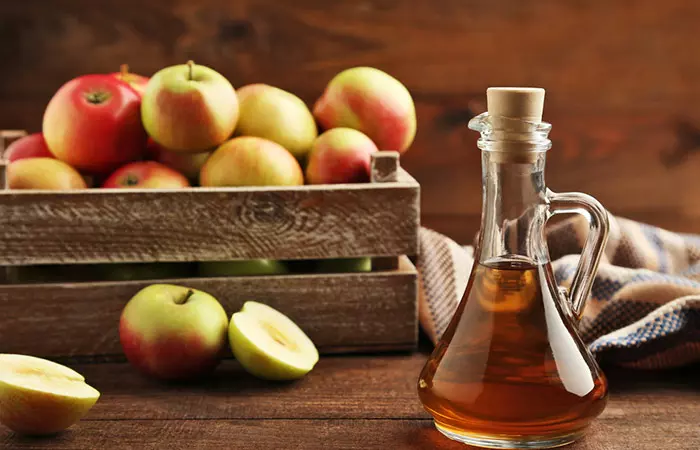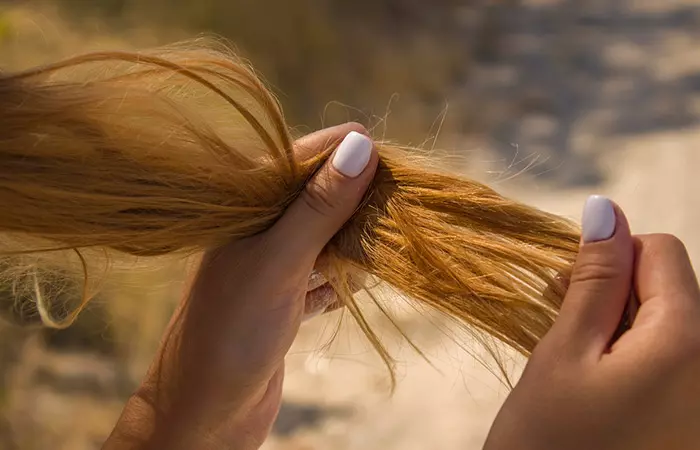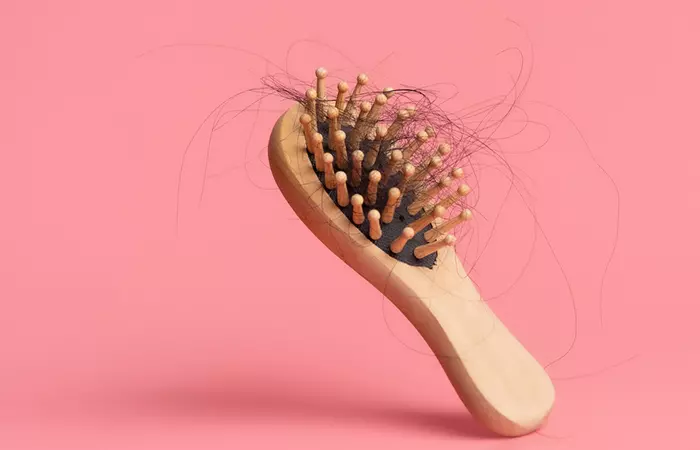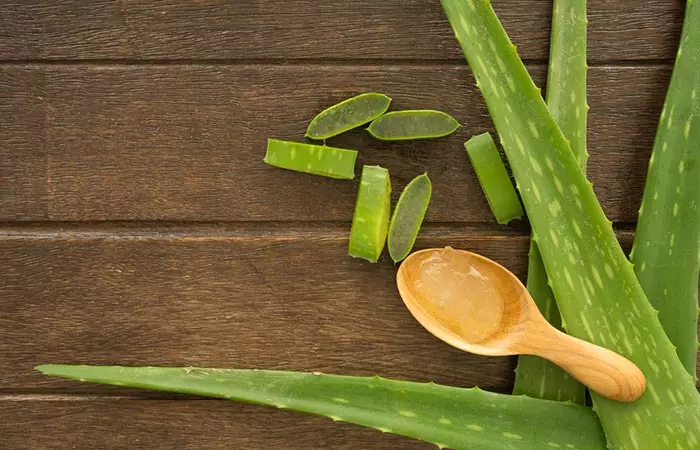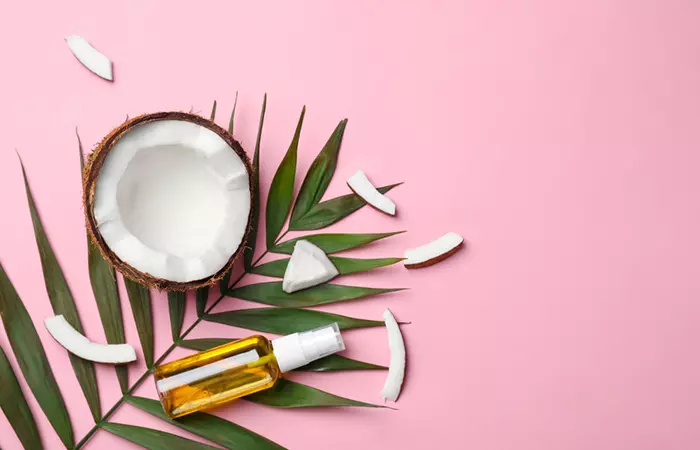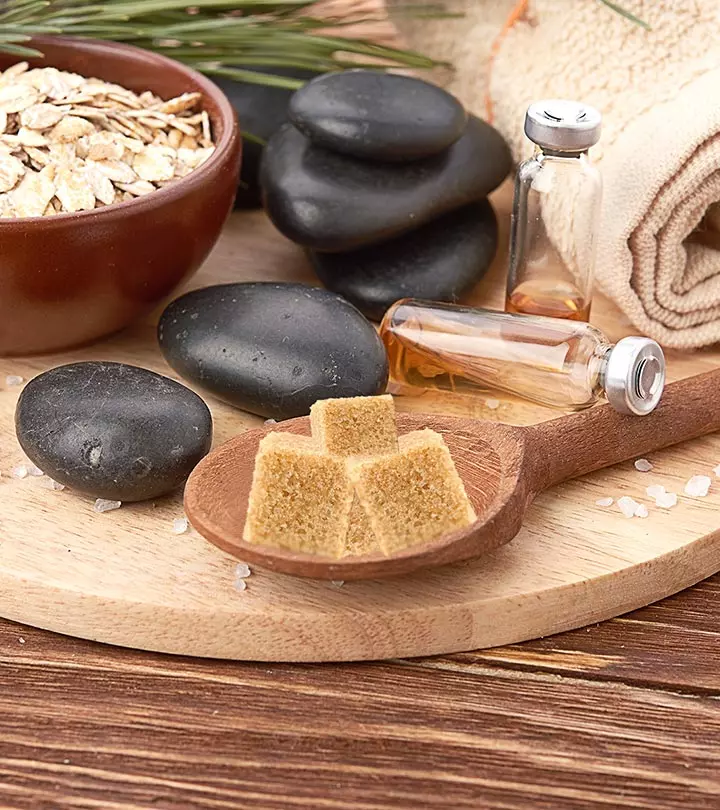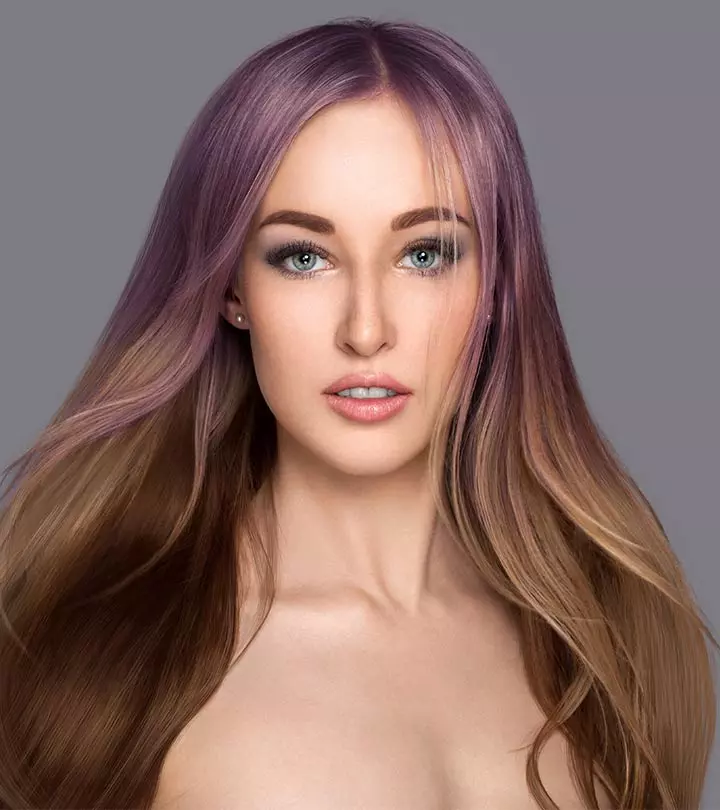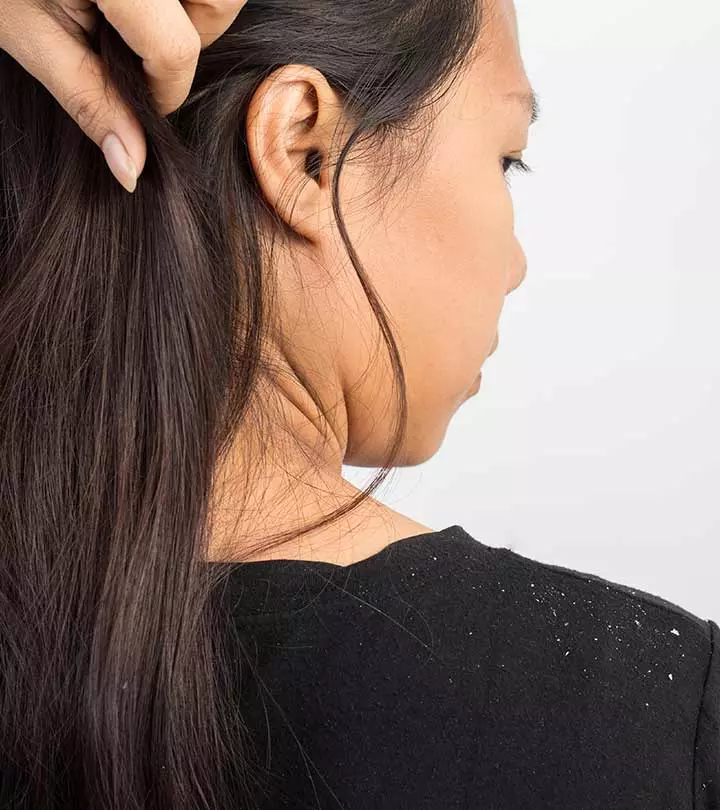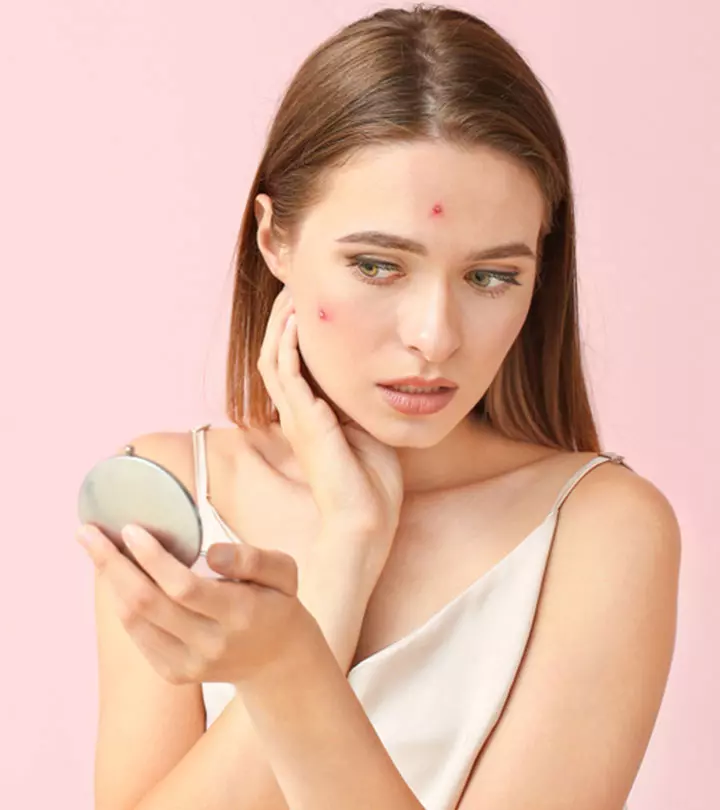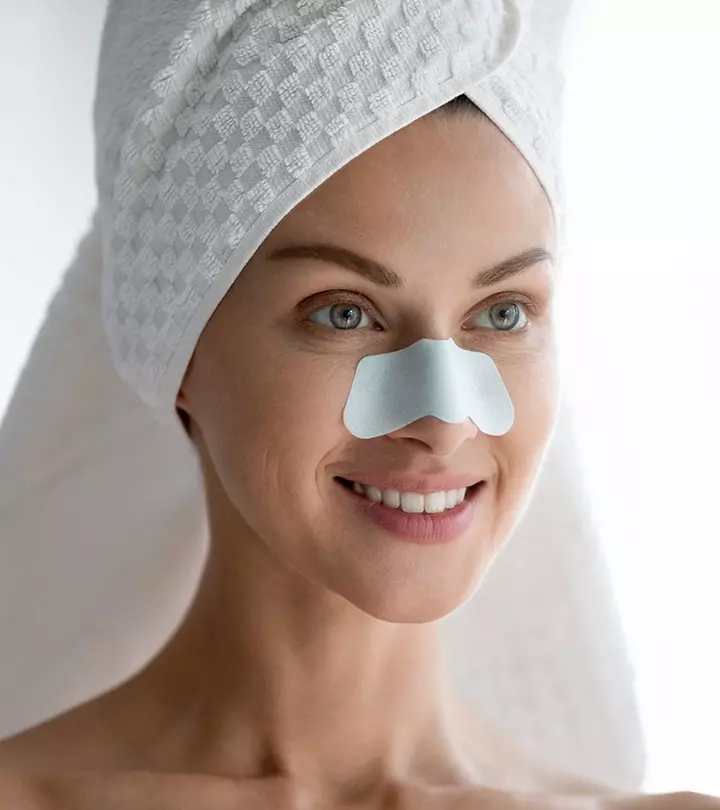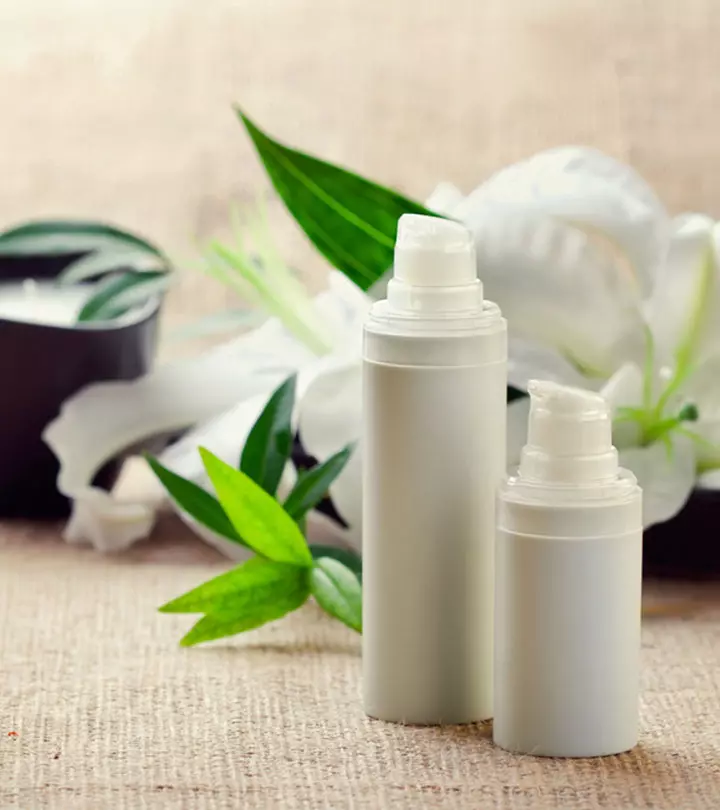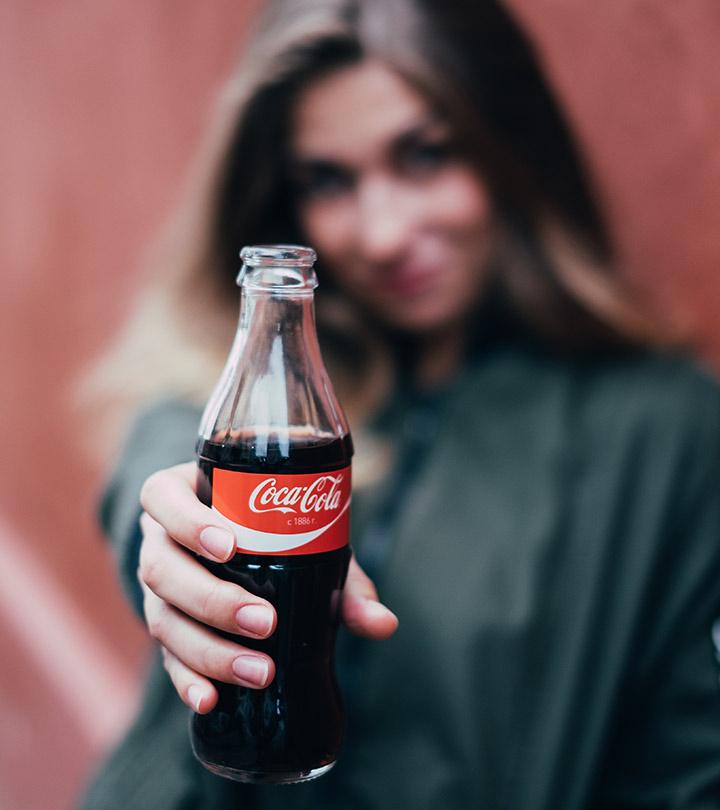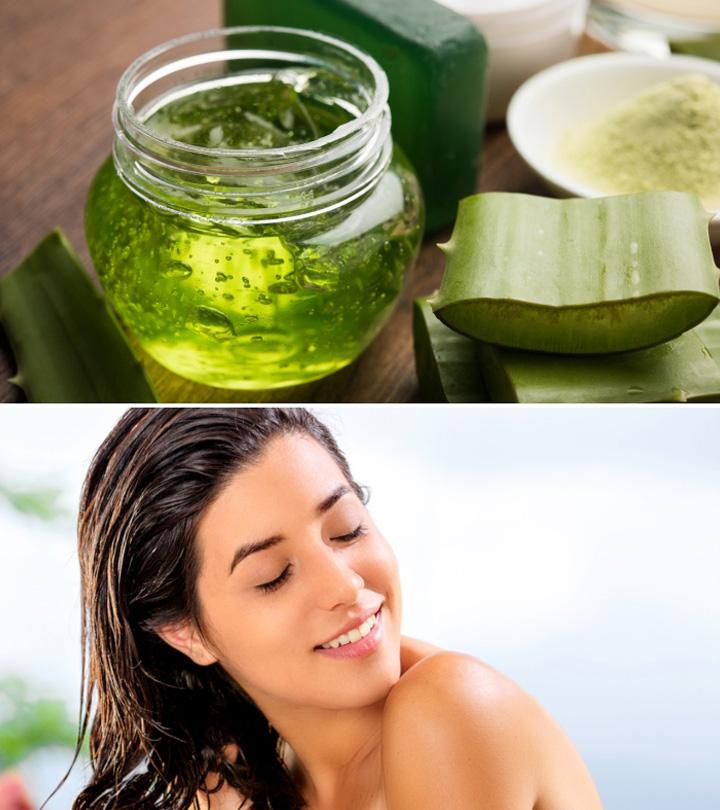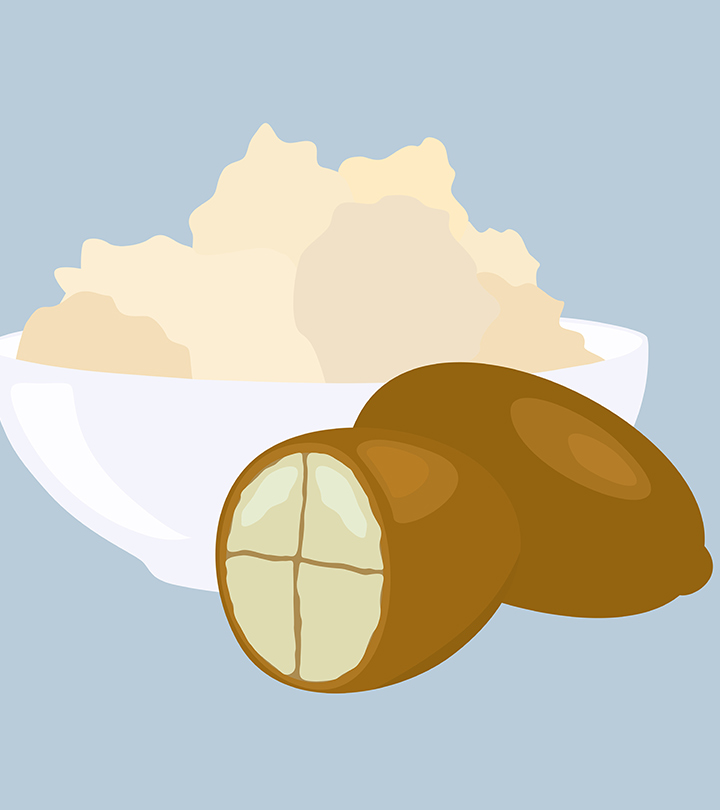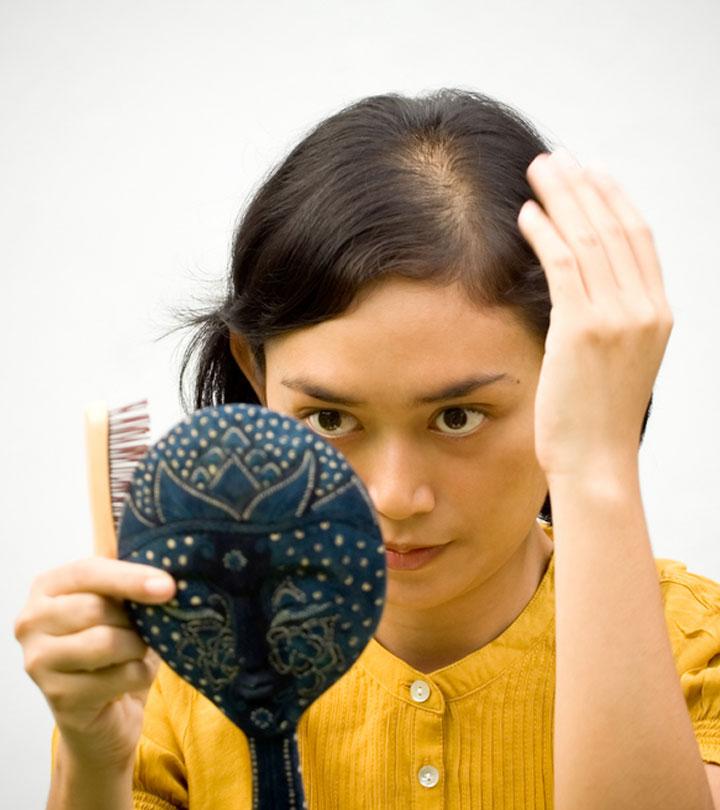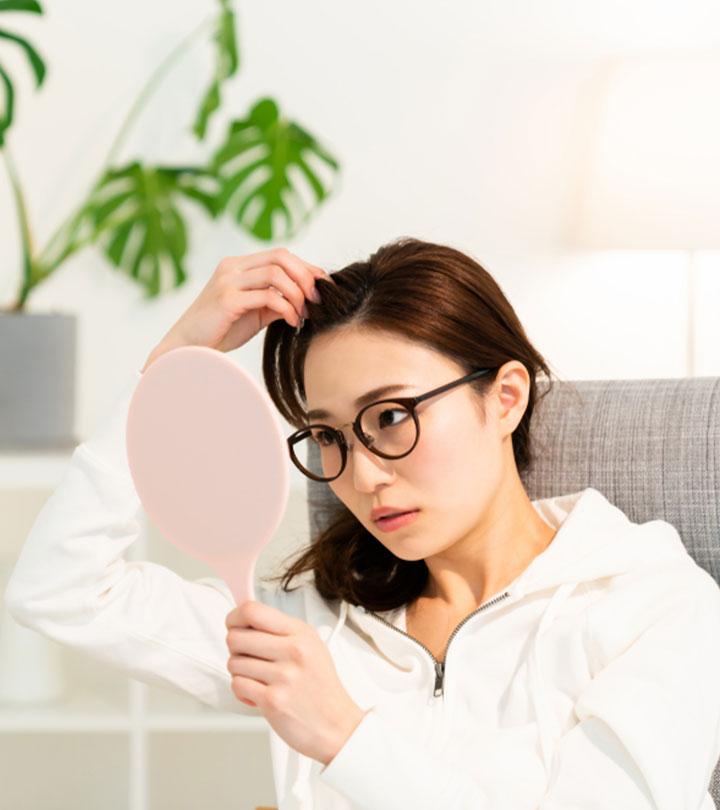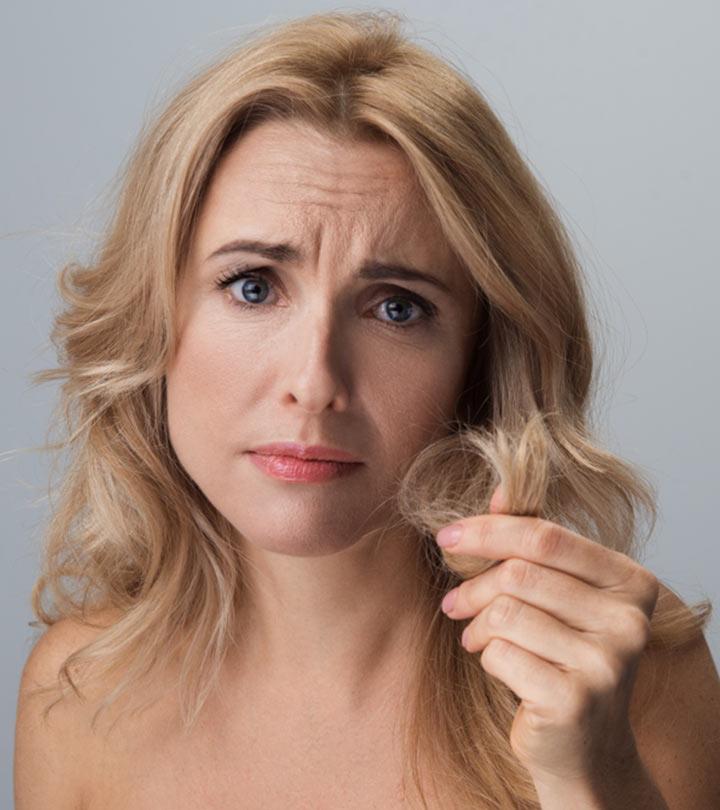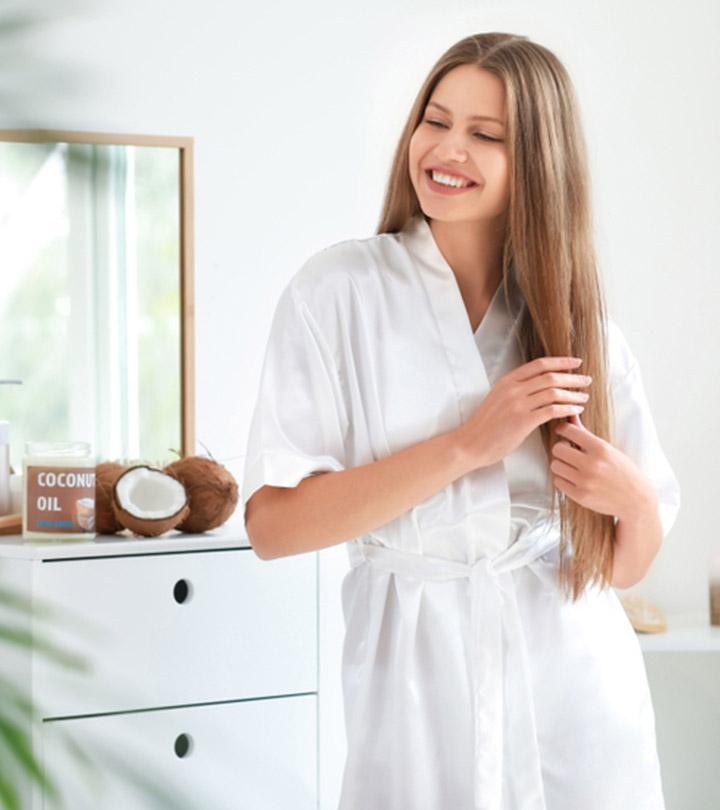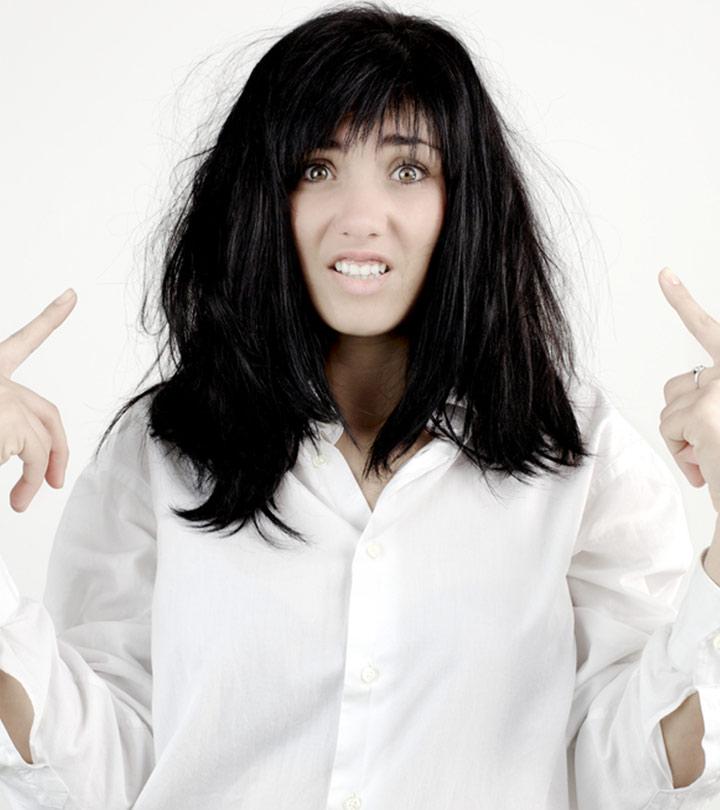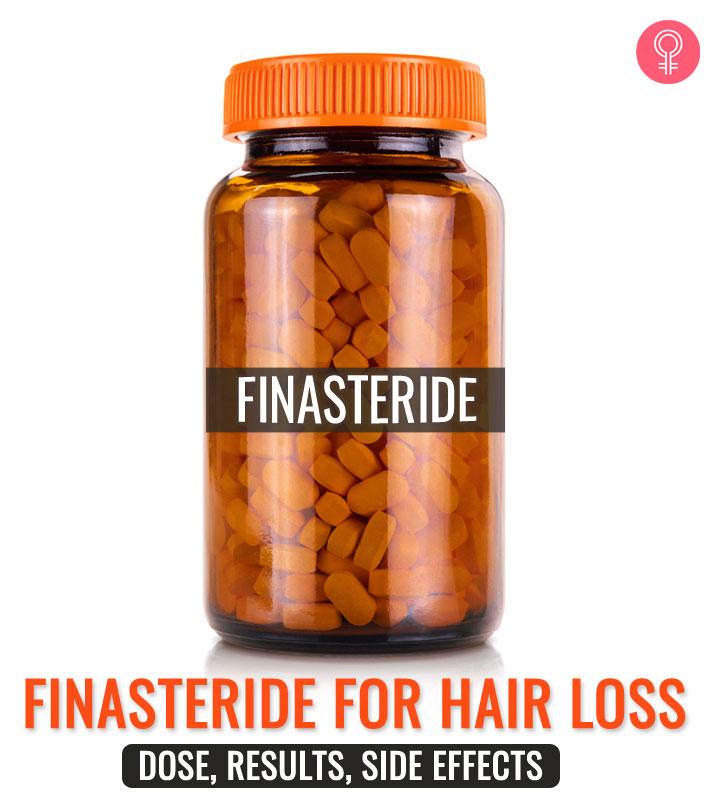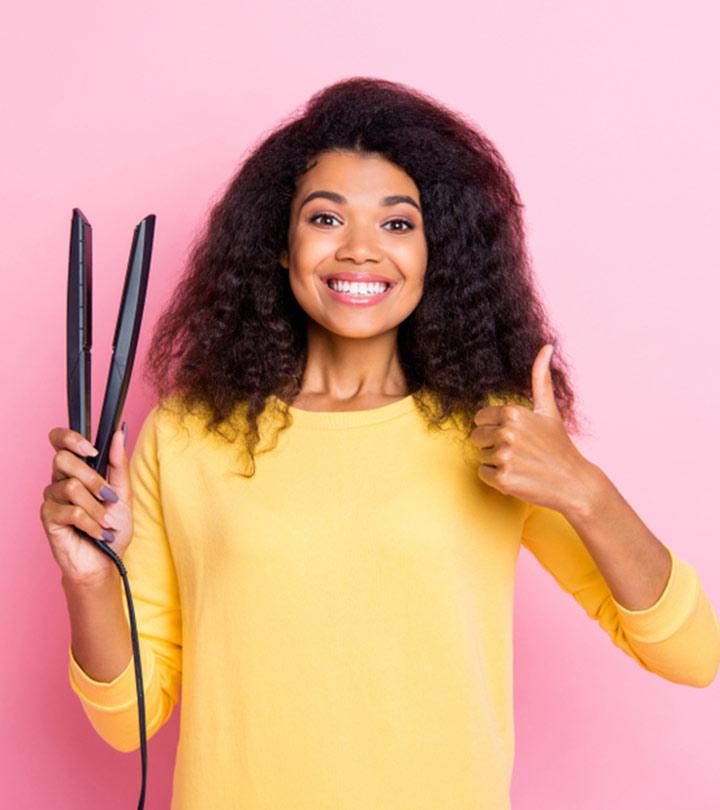Baking Soda For Hair: DIY Recipe, How To Use, & Side Effects
Learn the truth before attempting this natural remedy for deep cleansing your hair.
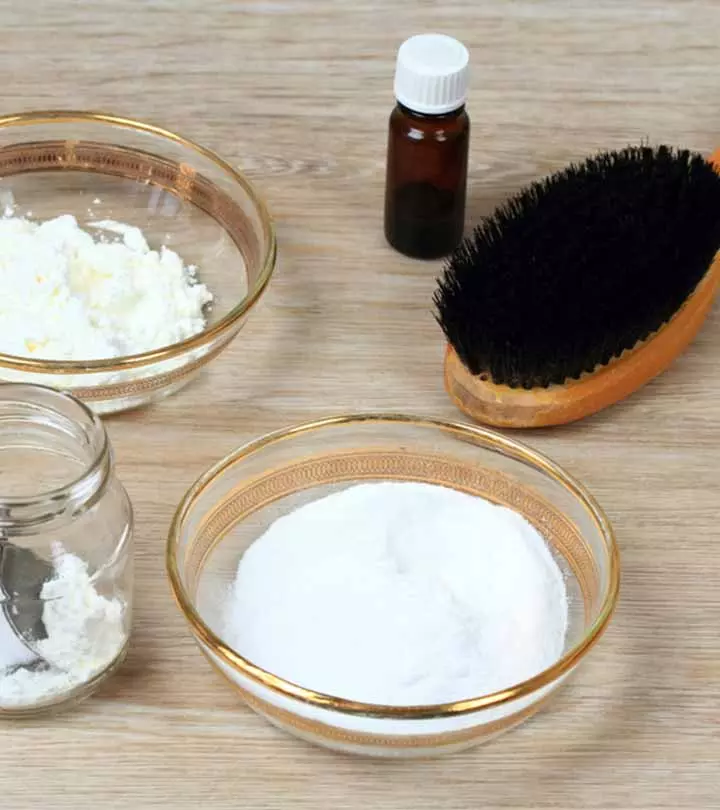
Image: Shutterstock
Natural hair care solutions are increasingly in demand. The aim is to find alternatives for harsh or harmful chemicals found in many products. One of the most surprising ingredients is baking soda for hair.
Baking soda has increasingly gained popularity as a hair-clarifying product. From cleaning the kitchen stains to baking your favorite goodies, baking soda has always been a multipurpose ingredient. However, does its cleaning and clarifying properties extend to our hair? Can it remove product buildup from the scalp?
Want to know how to use baking soda and why it is so great? Keep reading to learn more about the benefits and risks of using baking soda for hair and scalp, and find out how it may work.
 Know Your Ingredient: Baking Soda
Know Your Ingredient: Baking SodaWhat Is It?
A white color powder, also known as Sodium Bicarbonate.
What Are Its Benefits?
It acts as a cleaning agent and exfoliates the scalp, removing debris and dead skin.
Who Can Use It?
People with oily hair.
How Often?
Use it once a week. Using baking soda every day might make your hair feel dry.
Caution
People with dry skin and hair or curly hair should avoid using it. Only use the recommended amount, as too much baking soda can dry out your hair.
In This Article
The Science Behind Baking Soda
Baking soda or sodium bicarbonate contains only one compound – NaHCO3 – which includes sodium and bicarbonate ions.
Baking soda has a pH of around 9, which neutralizes acid and combines to form carbon dioxide gas.
The normal, healthy pH of our scalp is between 4 and 5, which is slightly acidic (1). Due to its high alkalinity, you have to be cautious with baking soda. Though it can be good for you, it can also easily disrupt the pH balance of the scalp if used incorrectly or too often.
Before learning about the correct way of using baking soda for hair, let’s check out the ways it can benefit your locks.
Is Baking Soda Good For Your Hair?
When it comes to hair care and scalp health, natural remedies and beauty tips can be a game-changer. Although not backed by medical or scientific evidence, many people report favorable results after washing their hair with baking soda. Here are a few benefits of baking soda for your hair:
1. Acts As A Cleansing Agent
Washing hair with baking soda may remove all types of dirt, oil, and build-up from your hair, thus leaving it squeaky clean. It is similar to what a clarifying shampoo does. It also helps remove any product or oil build-up that your scalp accumulates over time due to using multiple hair care products.
Also, if you have spent time in the pool lately, baking soda helps you get rid of all the damaging chlorine from your hair.
2. Works As A Scalp Scrub
The powdery particles of baking soda assist in exfoliatingi The process of removing dead skin cells from the surface of the skin. It helps unclog follicles and promote scalp health. the scalp, helping to scrub off the dead skin cells and debris from it.
3. Free Of All Chemical Additives
Using baking soda for your hair wash also comes as a welcome alternative to commercial shampoos that are full of many harmful additives like parabens, silicons, artificial fragrances, colors, etc.
4. Neutralizes Odor
All that residue from oil and hair care products combined with sweat can result in an awful odor emanating from your hair. Applying baking soda helps absorb this hair odor.
Moreover, baking soda is extremely affordable and hassle-free. It is affordable because a 16-ounce pack of baking soda costs less than a dollar, and hassle-free because it is very easy to prepare and apply.
Read on to know how to prepare your DIY baking soda hair wash.
Sylvia, a retired biologist, shared her experience of washing her with baking soda and apple cider vinegar in her blog. She states, “My hair immediately felt lighter and healthier. It felt much better than I expected…much better than any number of shampoo and conditioners I’ve tried (i).”
Washing Hair With Baking Soda: Easy DIY Recipe
Home remedies, such as hair masks and hair detox treatments, are gaining popularity for their easy-to-use formula and effective approach to maintaining healthy locks. And you can make your own little concoction whenever you want to wash your hair with baking soda.
Baking Soda Shampoo Recipe
What You Need
- Baking soda
- An empty bowl or a spare bottle
- Water
- Essential oil (optional)
What To Do
- Put one part of baking soda in the bowl/bottle.
- Combine the baking soda with around four parts of water.
- Add a few drops of essential oil.
- Mix everything thoroughly.
How To Use
- Wet your hair and apply the baking soda mixture from your roots to the tips.
- Massage the mixture on your scalp using gentle circular motions.
- Let the diluted baking soda sit in your hair for around one minute.
- Rinse it off with water. Be sure to wash the baking soda out of your hair thoroughly.
Use lukewarm water to mix your baking soda as hot or warm water can clump it up.
Follow Up With Apple Cider Vinegar
Baking soda opens the cuticles of your hair way too much, which can weaken it by absorbing too much water (2). Thus, after washing your hair with baking soda, rinse it with apple cider vinegar (one spoon of ACV mixed with a glass of lukewarm water).
It is claimed that apple cider vinegar seals the hair cuticles, reduces frizz, and imparts shine. Since ACV is acidic, it can also help stabilize the pH balance of the scalp.
Before you use baking soda as shampoo, learn the correct method of using this natural hair treatment or cleansing agent to wash your mane.
The Correct Way To Wash Your Hair With Baking Soda
What you need to understand here is to use different quantities of baking soda at different times.
- Initially, you need to clear your hair of all the silicones and hair products built up on your scalp and hair shafts. For this, you require one heaped tablespoon of baking soda mixed into a cup of water.
- You may have to wash in this manner around 3-4 times until you feel your hair is clear of all the build-up and just sebum is evident on your hair.
- Gradually, keep decreasing the amount of baking soda where you only use 1/2 or 1/4 teaspoon in a glass of water. This quantity will only target the sebum on your scalp without damaging it.
- A successful baking soda hair wash routine can let you easily go a week with washing your hair with only plain water.
Now, let’s investigate the possibility of using baking soda as a dry shampoo.
Can You Use Baking Soda As Dry Shampoo?
Yes, you can use baking soda as a dry shampoo alternative. Baking soda’s fine powder texture may help absorb excess oil and freshen your hair between washes. To use it, sprinkle a small amount onto your roots, focusing on the oily areas, then massage it in. After a few minutes, brush or comb your hair to distribute the baking soda and remove any excess. However, use it sparingly and avoid frequent use, as it can dry out your hair and scalp. Some people mix it with cocoa powder for darker hair tones. Try a patch test first to check for irritation. If you notice any redness, dryness, or irritation, stop using it. Wash your hair and consult a doctor immediately.
The internet is full of baking soda enthusiasts who swear by this natural hair cleanser. Still, it is critical to note some cases in which baking soda has caused a lot of damage to its users.
In the next section, you’ll learn about the possible side-effects of using baking soda in your hair.
Side Effects And Risks Of Using Baking Soda For Hair
Using baking soda in your regular hair wash routine can cause irreparable damage to the hair. Due to its pH incompatibility with the scalp, baking soda may pose the following side effects:
- Dryness
The idea of the no-poo trend is to go natural and choose mild and gentle ingredients in your hair washing routine. Using baking soda is, of course, a natural alternative. But, it is also an aggressive cleansing agent.
It may strip your hair of all the natural oils present on your scalp, making it overly dry and brittle. So, if your mane is already on the drier side, make sure you skip this method.
- Abrasion
The tiny baking soda crystals may cause abrasions on your scalp skin if massaged with force. Moreover, if you have delicate hair, it can tear the hair fibers and lead to hair loss and breakage.
- Scalp Irritation
People with sensitive scalps may experience scalp irritation and inflammation. Thus, people with dry scalp conditions like eczemai A chronic condition that causes the skin to become dry, itchy, cracked, or bumpy. This can also cause red, scaly patches or pus-filled sores to develop. or psoriasisi An autoimmune skin disease that occurs when the body's immune system attacks itself leading to excessive skin cell buildup and scaly patches. are not recommended to use baking soda in hair.
- Hair Breakage
Incorrect or regular use of baking soda can make your hair weak as it continually loses hydration in the process. Over time, it can damage the hair from within, resulting in hair fall and breakage.
- Not Suitable For Color-Treated Hair
Baking soda hair wash does not go well with dyed or color-treated hair as it strips away the color from your tresses by going deep inside the hair cuticle. If you experience dryness or scalp irritation, you must stop using baking soda immediately.
You now know what baking soda does to your hair if used too frequently. But, does your hair texture affect the results? Let us find out.
The Effects Of Baking Soda On Different Hair Types And Textures
- Due to the drying nature of baking soda, it is probably more effective on people with extra-oily hair.
- You can also go for baking soda if you think you have been using lots of chemical-laden hair care products for a long time and have a lot of build-up in your hair.
- Baking soda may also work well for fine and limp hairi Dull, lifeless, and flat hair may be caused by inadequate hair care, excessive sebum production from the scalp, or frequent heat styling. by giving it volume and texture. It may even help hold hairstyles in place.
- On the contrary, it is usually not suitable if you have naturally curly locks. Curly hair is already prone to breakage and falling due to weak internal bonds. Anything that is drying for your hair will make your curls lose shape and definition.
If you are considering using baking soda as shampoo, you should first pay attention to the scientific evidence.
What Research Suggests
Research says that applying anything with a pH higher than 5.5 may damage the scalp (1). These products can also increase static and friction between the hair strands, leading to frizz and tangles.
Since baking soda has a way higher pH than your scalp, it can harm your tresses. Thus, before using baking soda to wash your hair, it may be wise to try some other alternatives.
Other Alternatives To Baking Soda For Hair
The American Academy of Dermatology suggests reaching for a product that goes well with your hair type before zeroing in on a hair wash method (3).
If you are looking for natural alternatives to add to your hair wash routine, there are gentler options you can pick depending on the following:
- Your hair type – thick, thin, curly, wavy, or straight
- Your scalp type – oily, normal, or dry
- How strong your hair is
- Hair products you use (heat styling, blowdryers, pollution exposure, etc.)
You can try the following hair care ingredients for a healthy, wholesome hair wash.
1. Aloe Vera
It is gentle on your scalp and stimulates hair follicles leading to hair growth. However, there is no scientific evidence to prove the same. It mostly suits all types of hair and especially works well to soothe dry, irritated scalp types. For better results, it is best to use fresh aloe vera juice derived directly from the plant.
2. Rice Water
Rice water made from brown rice stores many nutrients beneficial for hair care (4). It is said to not only strengthen the strands but also significantly improve the appearance of your hair.
3. Coconut Oil
As coconut oil easily penetrates the hair shaft, it is one of the most sought after options to seal moisture in your hair (5). It is good for people with dry and brittle hair. Use a moderate amount to avoid weighed down, oily-looking tresses.
4. Jojoba Oil
Jojoba oil is similar to sebum, a substance naturally produced by your scalp. As such, it can help maintain a healthy oil balance.
Infographic: How To Remove Hair Color With Baking Soda
Baking soda is usually not recommended to be used on color-treated hair. However, you can use this to your advantage if you want to remove semi-permanent or temporary hair dye. You can also use baking soda for spot-hair dye removal. Check the infographic below to learn the steps in detail. Illustration: StyleCraze Design Team
 Quick Tip
Quick TipYou can also use a clarifying shampoo once or twice a week instead of baking soda to cleanse your hair.
Baking soda is one of the best hair-clarifying productsi Hair products that help clarify the scalp by removing dirt, oil, dead skin cells, product buildup, and other impurities. to replace the harsh and harmful chemicals found in commercially available products. Using baking soda for hair will help cleanse your hair of the product build-up, oil, and dirt. The easy DIY recipes and tips shared in the article help you prepare them at home. You can also learn how to wash your hair with baking soda in this article.
However, you should not use baking soda frequently. It is advised to use only when your scalp needs a deep cleansing. Also, it is better to avoid it if you have dry hair.
Frequently Asked Questions
Can I mix baking soda with shampoo?
Yes, you can mix baking soda with shampoo and use it as a clarifying shampoo for oily hair and scalp. It can help remove product build-up, oil, and dirt.
Does baking soda open hair follicles?
Yes, banking soda may help open hair follicles, resulting in better water and product absorption.
What happens if you put vinegar and baking soda in your hair?
Baking soda opens the hair cuticle, and vinegar helps seal the hair cuticle. So you can apply baking soda first and follow it up with a vinegar rinse to keep your hair moisturized.
Will baking soda take the yellow out of gray hair?
Yes, baking soda can take the yellow out of gray hair. The bleaching properties of baking soda help treat hair discoloration.
Key Takeaways
- Baking soda can help remove oil, dirt, and product build-up from your hair and combat bad odor.
- Wash your hair with a mixture of baking soda, water, and an essential oil of your choice.
- You can follow this up with an apple cider vinegar rinse to close the hair cuticles and add shine.
- Using baking soda for your hair regularly may cause dryness and hair fall.
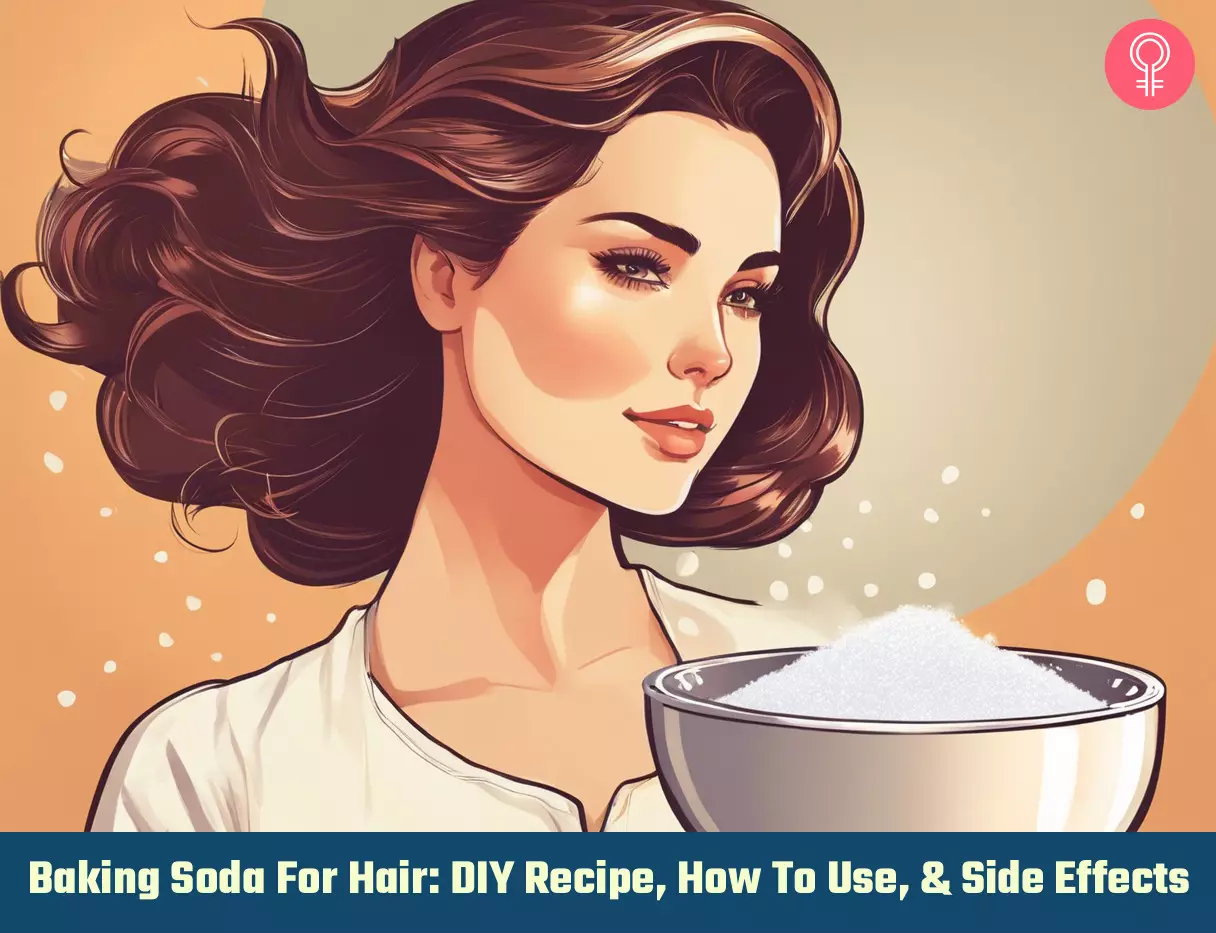
Image: Stable Diffusion/StyleCraze Design Team
References
Articles on StyleCraze are backed by verified information from peer-reviewed and academic research papers, reputed organizations, research institutions, and medical associations to ensure accuracy and relevance. Read our editorial policy to learn more.
- The Shampoo pH can Affect the Hair: Myth or Reality?
https://www.ncbi.nlm.nih.gov/pmc/articles/PMC4158629/ - Hair Cosmetics: An Overview
https://www.ncbi.nlm.nih.gov/pmc/articles/PMC4387693/ - Tips For Healthy Hair
https://www.aad.org/public/everyday-care/hair-scalp-care/hair/healthy-hair-tips - Hair Growth Promoting Effect of 4HGF Encapsulated with PGA Nanoparticles (PGA-4HGF) by β-Catenin Activation and Its Related Cell Cycle Molecules
https://www.ncbi.nlm.nih.gov/pmc/articles/PMC6678797/ - Effect of mineral oil, sunflower oil, and coconut oil on prevention of hair damage
https://pubmed.ncbi.nlm.nih.gov/12715094/ - The Shampoo pH can Affect the Hair: Myth or Reality?
https://www.ncbi.nlm.nih.gov/pmc/articles/PMC4158629/ - Hair Cosmetics: An Overview
https://www.ncbi.nlm.nih.gov/pmc/articles/PMC4387693/ - Tips For Healthy Hair
https://www.aad.org/public/everyday-care/hair-scalp-care/hair/healthy-hair-tips - Hair Growth Promoting Effect of 4HGF Encapsulated with PGA Nanoparticles (PGA-4HGF) by β-Catenin Activation and Its Related Cell Cycle Molecules
https://www.ncbi.nlm.nih.gov/pmc/articles/PMC6678797/ - Effect of mineral oil, sunflower oil, and coconut oil on prevention of hair damage
https://pubmed.ncbi.nlm.nih.gov/12715094/
Read full bio of Dr. Shruti Chavan
Read full bio of Ramona Sinha
Read full bio of Medha Deb





